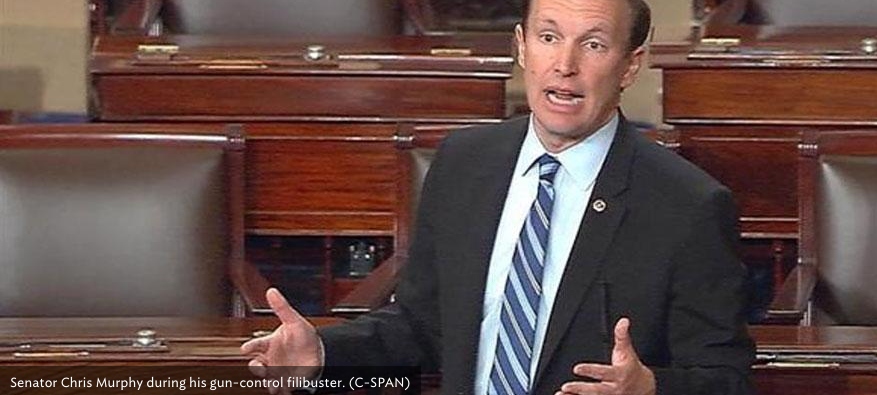In the wake of terrorist attacks, Democrats push for gun-control laws that would not have stopped them. Almost as soon as the massacre at the Orlando nightclub Pulse ended, Democrats took up their push to forbid people on the terrorism watch list from purchasing guns.
The timing, in the wake of the awful shock of the Orlando attack, was right, and the talking points wrote themselves. The polling was, of course, very good. The only problem was that the Orlando killer wasn’t on the watch list when he bought his weapons (although he had previously been on the list in 2013 and 2014 before the FBI removed him). Democrats nonetheless maintained that the watch-list legislation was an urgent necessity.
Few policy proposals are as routinely irrelevant as so-called common-sense gun-control measures — and seemingly, the less relevant they are, the more passionately their advocates support them. The three proposals that the Left always calls for — prohibitions of purchases by people on the watch list; ending the alleged gun-show loophole; universal background checks — usually have nothing to do with the shootings they are meant to stop. They are a trinity of non sequiturs.
Consider the Orlando and San Bernardino killers. They weren’t on the terrorism watch list when they bought their guns; they didn’t go to gun shows to get them; and they all passed background checks. Democrats could have passed their preferred legislation on all these matters long ago, and it wouldn’t have discomfited these monsters in the least.
The question of effectiveness shouldn’t be considered a “trap,” but rather a basic measuring stick of legislation. It’s hard to think of any other area where a political party is so thunderously self-righteous while not caring whether its proposals would materially change anything or not.
In light of the fact that Omar Mateen had once been on the terrorist watch list, Democrats widened the net of their proposed legislation to catch not just people who are on the list, but have been investigated during the past five years. This implicit nod toward relevance makes the central flaw in the bill worse: It would deny people a constitutional right based on mere suspicion, with no real opportunity for due process. (It should be possible to reach a compromise that includes some reasonable measure of due process, although none seems in the offing for now.)
Source: Rich Lowry, nationalreview.com
 Listen Online
Listen Online Watch Online
Watch Online Find a Station in Your Area
Find a Station in Your Area









 Listen Now
Listen Now Watch Online
Watch Online
